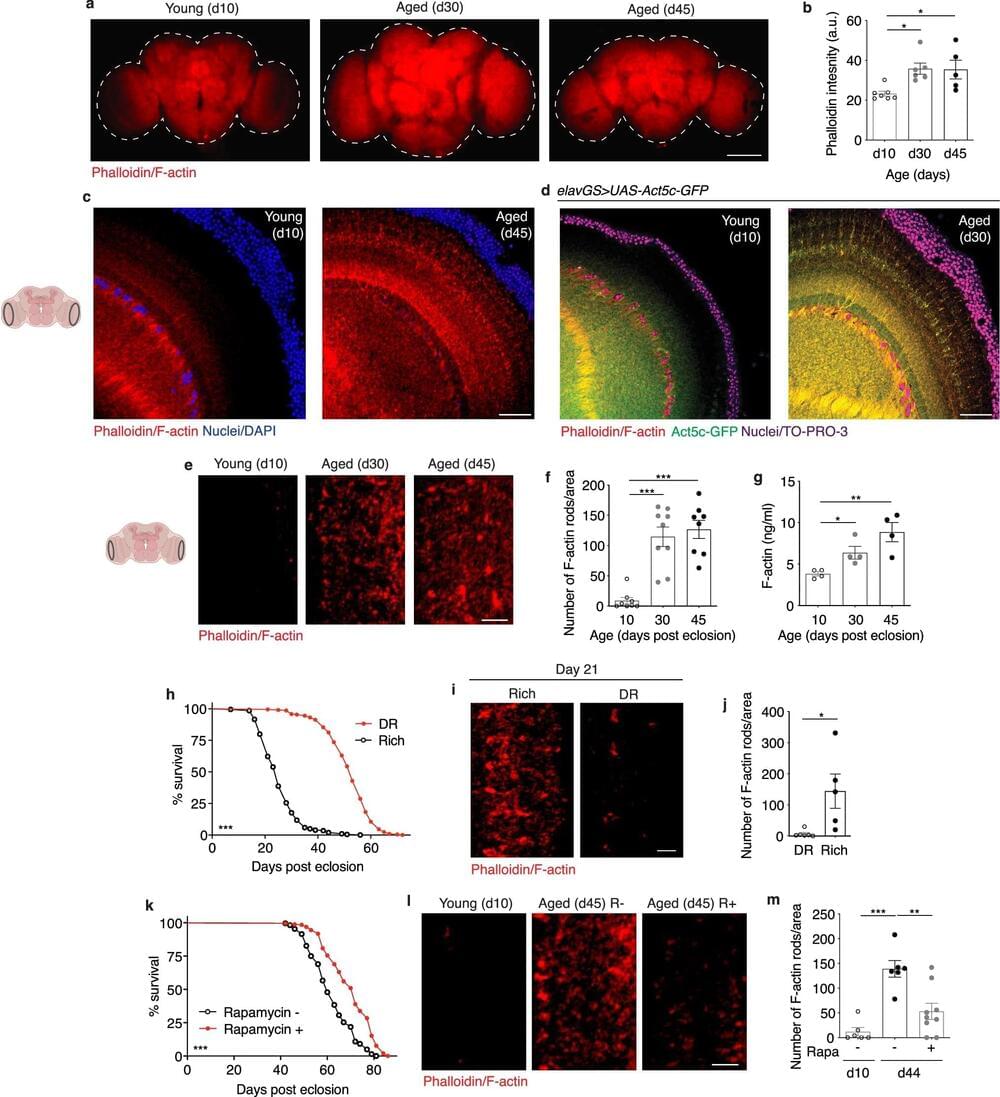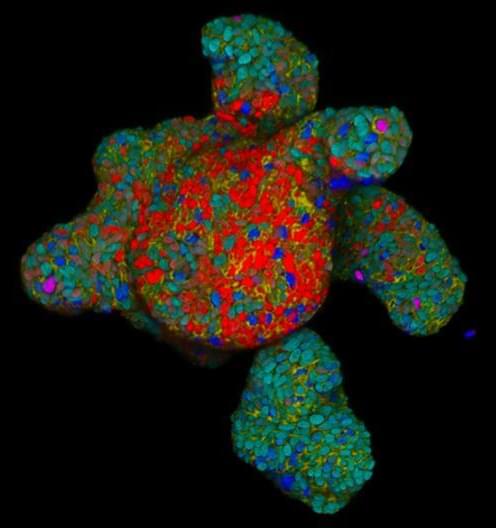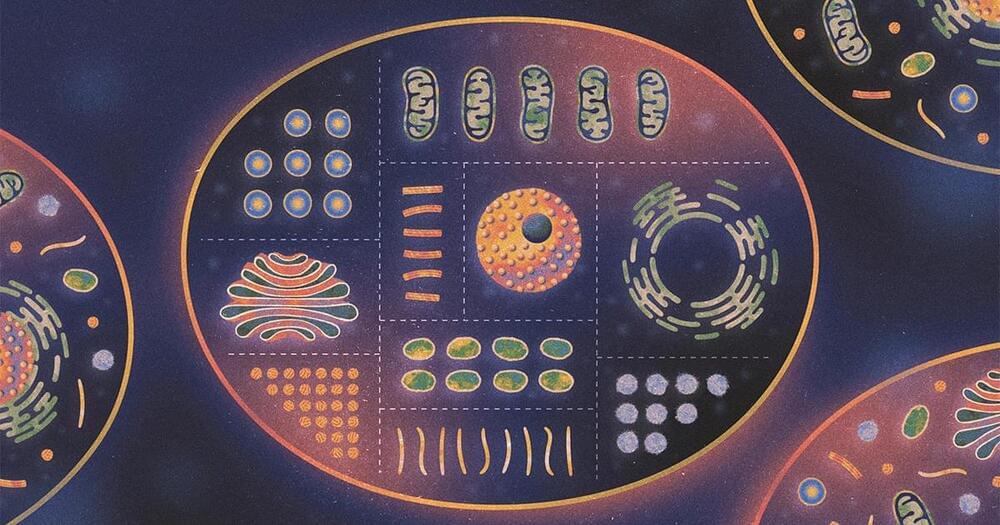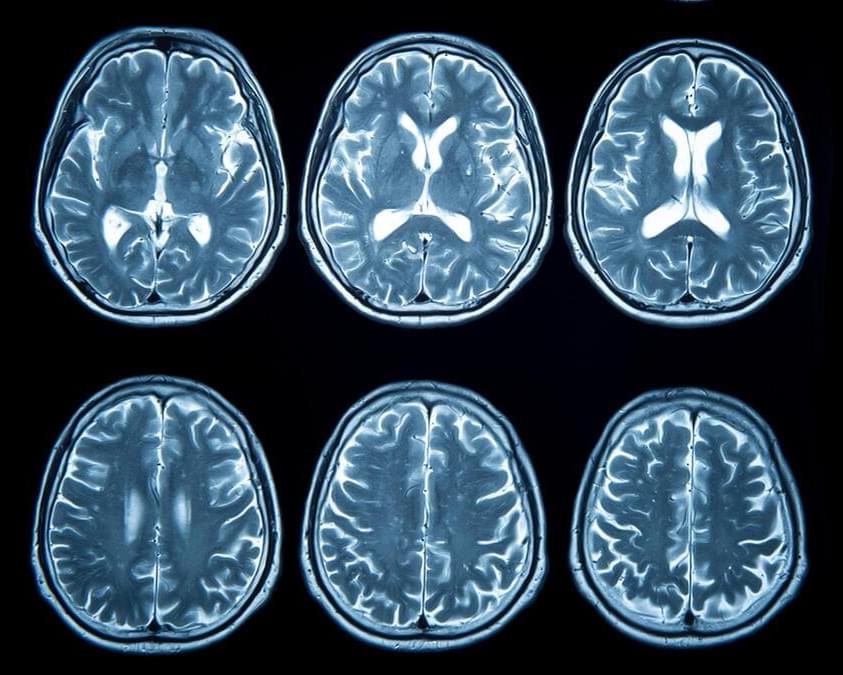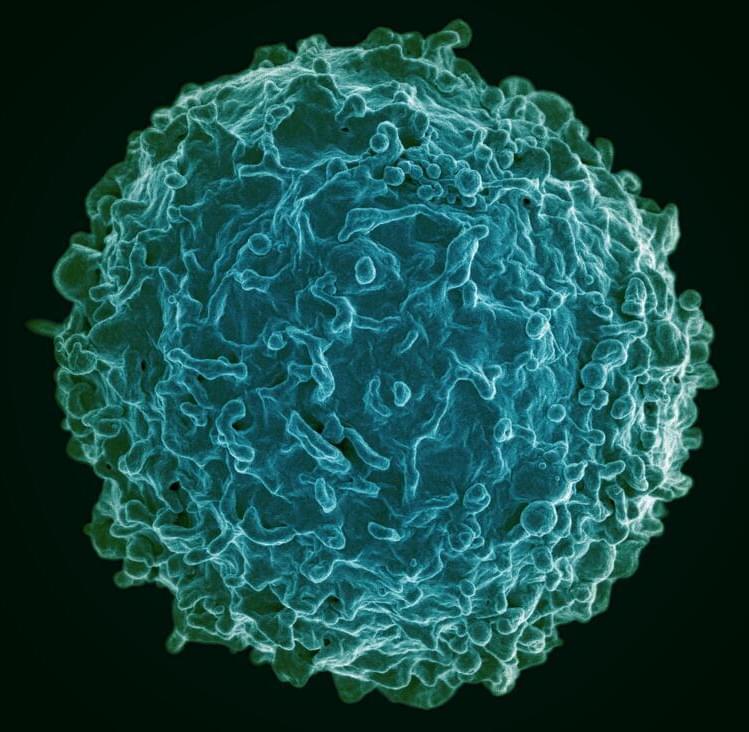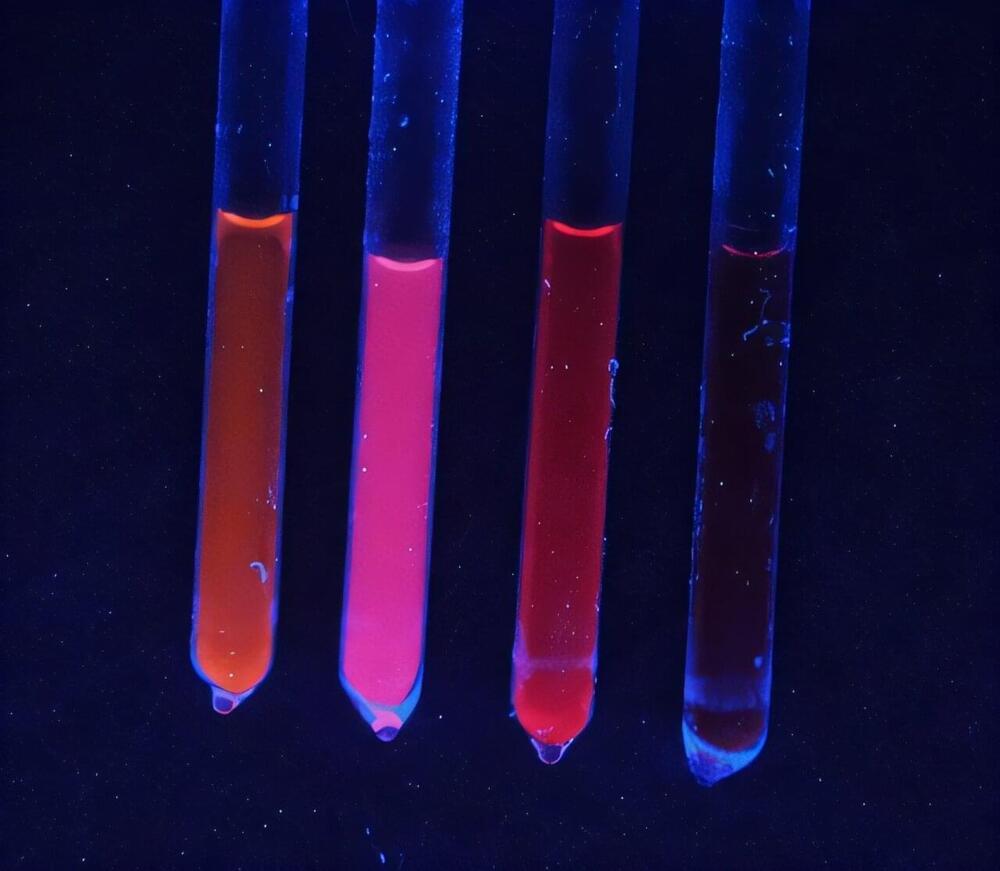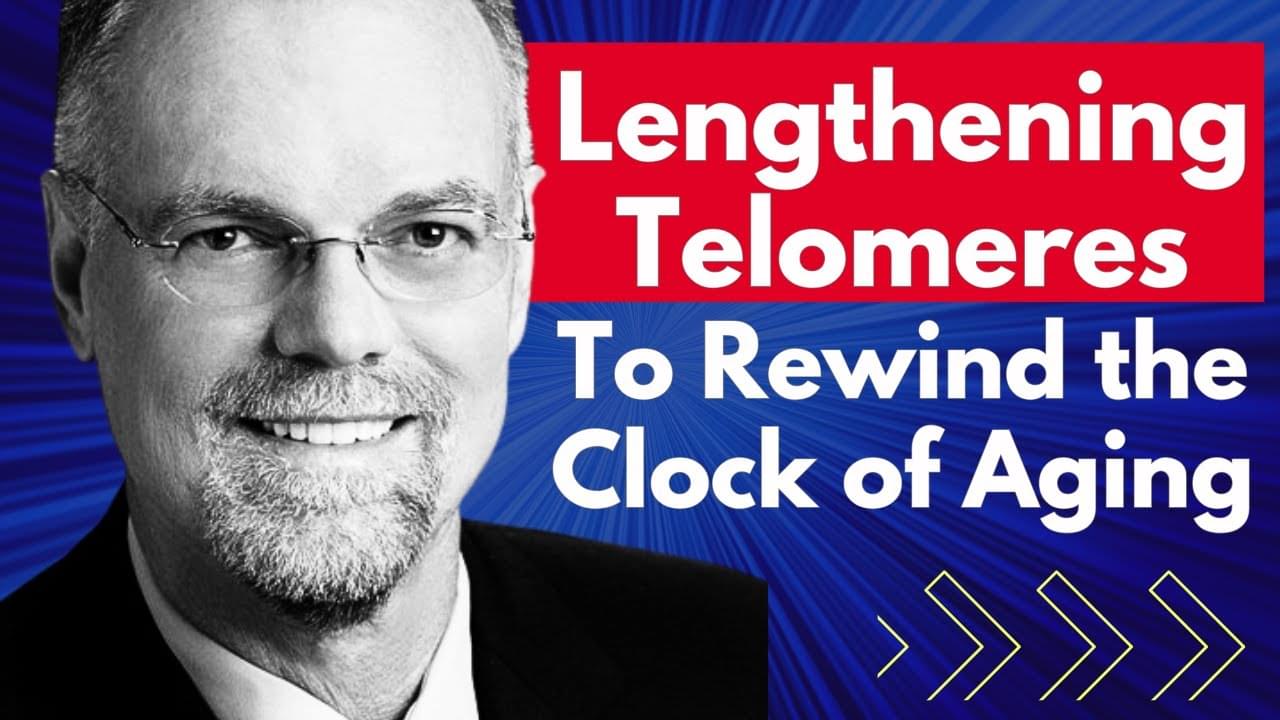Oct 28, 2024
Scientists can reverse brain aging in fruit flies by preventing buildup of a common protein
Posted by Shubham Ghosh Roy in categories: biotech/medical, life extension, neuroscience
Actin, a family of proteins that help give cells their shape, are abundant throughout the body.
Humans aren’t the only ones who grow forgetful as they age—fruit flies do, too. But because fruit flies have a lifespan of only about two months, they can be a useful model for understanding the cognitive decline that comes with aging.
A new study published in Nature Communications shows that when a common cell structural protein called filamentous actin, or F-actin, builds up in the brain, it inhibits a key process that removes unnecessary or dysfunctional components within cells, including DNA, lipids, proteins and organelles.
